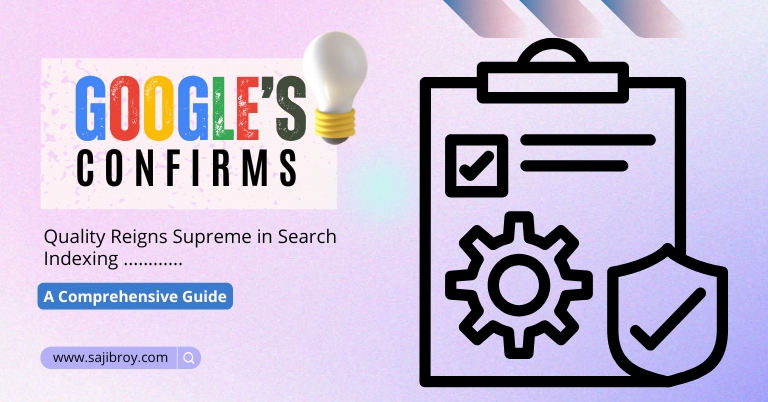The best SEO tools for beginners are google analytics and google search console. These tools provide comprehensive data and insights into website performance and search engine optimization.
With google analytics, users can track website traffic, visitor behavior, and conversions, while Google search console allows them to monitor and optimize their website’s presence in search results. Search engine optimization (SEO) is crucial for any website looking to attract organic traffic and improve visibility on search engines.
However, for beginners, navigating the world of SEO tools can be overwhelming. Fortunately, there are two essential tools that every newcomer should consider using: google analytics and google search console. Google Analytics provides a wealth of data and insights into website performance. Users can analyze website traffic, track visitor behavior, understand conversion rates, and gain valuable insights that can inform SEO strategies. On the other hand, google’s search console allows users to monitor and optimize their website’s presence in search results. It provides information on organic search performance, indexing, and crawling issues, allowing users to make necessary improvements to their website’s SEO. By leveraging the power of these two tools, beginners can lay a solid foundation for their SEO efforts and gain valuable insights into their website’s performance.

Let's See the Topic Overview
Understanding The Importance Of SEO Tools
Understanding the importance of SEO tools is crucial for beginners. Some of the best SEO tools for beginners include google analytics, Moz, Semrush, ahrefs, and Yoast SEO. These tools can help optimize website performance, track keyword rankings, analyze competitor strategies, and improve overall SEO efforts.
Importance Of SEO Tools For Beginner Marketers
When it comes to digital marketing, search engine optimization (SEO) plays a crucial role in boosting website visibility and attracting organic traffic. However, for beginners, navigating the world of SEO can be overwhelming without the proper tools. That’s where SEO tools come in handy.
These tools are designed to help marketers understand and implement effective SEO strategies without requiring advanced technical knowledge. Let’s explore why SEO tools are so important for beginner marketers:
Benefits Of Using SEO Tools For Optimizing Website Performance:
- Keyword research: SEO tools provide valuable insights into the most relevant keywords for your niche, helping you identify the terms that potential customers are searching for. By integrating these keywords into your website content, you can enhance your chances of ranking higher in search engine results pages (SERPs).
- Competitor analysis: SEO tools allow you to analyze your competitors’ websites and identify their top-performing keywords, backlinks, and content strategies. This information can guide your own SEO efforts and help you stay ahead in the game.
- Website auditing: SEO tools enable you to conduct comprehensive audits of your website’s technical and on-page SEO elements. This includes checking for broken links, duplicate content, page speed issues, and other factors that may hinder your website’s performance in search engines.
- Backlink analysis: Backlinks play a critical role in SEO, and SEO tools provide insights into the backlink profiles of your website and competitors. By analyzing backlink sources and quality, you can develop a link-building strategy to boost your website’s authority and search rankings.
- Content optimization: SEO tools offer suggestions for optimizing your website content by analyzing factors such as keyword usage, readability, and overall quality. This helps you create compelling and SEO-friendly content that engages users while improving your website’s visibility in search results.
- Rank tracking: Monitoring your website’s search engine ranking is essential for evaluating the success of your SEO efforts. SEO tools provide regular updates on your keyword rankings, allowing you to track progress, identify areas for improvement, and adjust your strategies accordingly.
SEO tools are invaluable for beginner marketers, as they provide essential insights and resources necessary for optimizing website performance. From keyword research and competitor analysis to website audits and content optimization, these tools empower marketers to understand and implement effective SEO strategies, ultimately driving organic traffic and online success.
So, if you’re new to SEO, don’t underestimate the power of these tools in amplifying your digital presence.
Keyword Research Tools
For beginners looking to improve their SEO, some of the best keyword research tools available include Semrush, Moz, and ahrefs. These tools provide insights into keyword rankings, search volume, and competition, helping beginners optimize their website content effectively.
Popular Keyword Research Tools For Beginners
Keyword research is a crucial aspect of SEO, as it helps you identify the terms and phrases that people are using to search for information online. By leveraging keyword research tools, you can gain valuable insights into your target audience’s search behavior and optimize your content accordingly.
Here are some popular keyword research tools that are suitable for beginners:
- Google keyword planner: This free tool from Google is a go-to for many beginners. It provides keyword ideas, search volume data, and competition-level information to help you find relevant keywords for your content.
- Semrush: With its extensive keyword database, Semrush allows you to conduct in-depth keyword research. It provides valuable data on search volume, keyword difficulty, competitive insights, and more.
- Moz keyword explorer: Moz is a reputable SEO software provider, and its keyword explorer tool is known for its accuracy. It gives you insights into search volume, keyword difficulty, and potential organic click-through rates.
- Ahrefs keywords explorer: Ahrefs is another popular SEO tool that offers comprehensive keyword research capabilities. You can discover new keyword ideas, analyze search volumes, and assess keyword difficulty with this tool.
- Ubersuggest: Ubersuggest is a free keyword research tool that provides an extensive list of keyword suggestions, search volume data, and keyword difficulty scores. It’s a beginner-friendly option for those on a budget.
- Answer the public: This tool helps you understand the questions and phrases people use when searching for information. It provides valuable insights into popular search queries related to your target keywords.
- Keywordtool.io: With keywordtool.io, you can generate keyword suggestions based on Google autocomplete. It scrapes Google’s search suggestions and provides long-tail keyword ideas.
- Wordtracker: Wordtracker offers a variety of SEO tools, including a keyword research tool. It provides insights into search volumes and helps you identify relevant keywords for your content.
- Long tail Pro: As the name suggests, long tail pro focuses on discovering long-tail keywords. It provides keyword suggestions, search volume data, and competition analysis for more targeted keywords.
- Serpstat: Offering a wide range of SEO tools, Serpstat also includes a keyword research feature. It allows you to analyze search volume, and competition, and discover related keyword variations.
These popular keyword research tools can assist beginners in uncovering valuable insights to enhance their SEO efforts. From finding relevant keywords to analyzing competition levels, these tools provide the necessary information to drive organic traffic to your website. Experiment with different tools to see which one aligns best with your needs and start optimizing your content for improved search rankings.
On-Page SEO Tools
New to SEO? These on-page SEO tools are perfect for beginners. With easy navigation and user-friendly interfaces, they help optimize your website for search engines and boost your rankings.
Essential On-Page SEO Tools For Beginners
When it comes to improving your website’s visibility on search engines, on-page SEO plays a vital role. Optimizing your webpage elements is essential to ensure that search engines can understand and rank your content effectively. Fortunately, there are several on-page SEO tools available that can help beginners get started on their SEO journey.
Here are some essential tools to consider:
- Keyword research tools: These tools help you find relevant keywords and phrases that you can incorporate into your content. They provide valuable insights on search volume, competition, and keyword variations to help you optimize your content effectively.
- Title tag optimization tools: Title tags are crucial for on-page SEO as they appear in search engine results. These tools analyze your title tags and provide recommendations for improving their length, relevance, and readability.
- Meta description optimization tools: Meta descriptions provide a brief summary of your web page in search engine results. These tools analyze your meta descriptions and offer suggestions for making them enticing, concise, and relevant.
- Heading tag analysis tools: Heading tags (h1, h2, h3, etc.) Organize your content and indicate its structure to search engines. These tools help you analyze the usage and placement of heading tags to ensure they align with best practices.
- Image optimization tools: Images enhance the visual appeal of your web page, but they also need to be optimized for SEO. These tools analyze your images and suggest improvements in terms of alt text, file size, and format to help search engines understand them better.
- Url optimization tools: Urls play a role in both user experience and SEO. These tools analyze your URLs and provide recommendations for making them concise, descriptive, and user-friendly.
- Internal linking analysis tools: Internal links help search engines navigate and understand your website’s structure. These tools analyze your internal links and offer insights on improving their anchor text, relevance, and distribution.
- Mobile-friendliness testing tools: With mobile usage on the rise, having a mobile-friendly website is crucial for SEO. These tools test your website’s responsiveness and provide recommendations for optimizing its mobile experience.
- Page speed analysis tools: Page speed is an essential ranking factor and affects user experience. These tools analyze your website’s loading speed and suggest optimizations that can improve performance.
- Schema markup generation tools: Schema markup helps search engines understand your content better and display it in more attractive ways. These tools generate structured data markup that you can add to your web pages.
By utilizing these essential on-page SEO tools, beginners can optimize their webpage elements effectively and improve their chances of ranking higher in search engine results. Remember to experiment, learn, and adapt your strategies based on the insights provided by these tools.

Backlink Analysis Tools
Discover the best SEO tools for beginners with our backlink analysis tools. These user-friendly tools provide actionable insights to improve your website’s search engine rankings and drive organic traffic. Gain an edge in the digital landscape with our beginner-friendly SEO tools.
Analyzing And Monitoring Backlinks With Beginner-Friendly Tools
Backlink analysis tools are essential for understanding the quality, quantity, and relevance of the backlinks pointing to your website. They provide valuable insights into your website’s performance and help identify opportunities for improvement. For beginners, it’s crucial to choose tools that are user-friendly and offer clear and actionable data.
Here are some top backlink analysis tools that are perfect for beginners:
- Google search console: A free tool provided by Google that enables you to monitor your website’s performance in search results, including the backlinks. It offers basic insights into the number of backlinks, linking domains, and the pages they are linked to.
- Ahrefs: Known for its comprehensive backlink analysis, ahrefs offers a beginner-friendly interface. It provides valuable metrics such as domain rating, URL rating, referring domains, and referring pages. Their site explorer tool enables you to analyze your competitor’s backlinks and discover new link-building opportunities.
- Moz link explorer: Moz offers a user-friendly backlink analysis tool that provides detailed data on backlinks, anchor text, linking domains, and spam scores. It also offers helpful metrics like domain authority and page authority, which gauge the overall strength of your website.
- Semrush backlink analytics: Semrush enables beginners to analyze their backlinks with ease. It provides insights into backlink types, referring domains, anchor texts, and referring IPs. Additionally, you can track your backlink profile over time and monitor any changes and improvements.
- Ubersuggest: Ubersuggest, created by Neil Patel, is a straightforward and beginner-friendly tool that offers a basic backlink analysis feature. It provides essential data like domain scores, referring domains, and anchor texts. Ubersuggest is a great tool to get started with backlink analysis without overwhelming beginners with complex features.
By using these backlink analysis tools, beginners can gain valuable insights into their website’s backlink profile and track progress over time. Understanding the quality and relevance of backlinks will empower you to take the necessary actions to improve your website’s authority and organic search performance.
Keep exploring and experimenting with these tools to further enhance your website’s backlink strategy.
Technical SEO Tools
Discover the best SEO tools for beginners to improve your website rankings. Get started with technical SEO tools designed to optimize your site’s performance and increase organic traffic. Master the basics and gain a competitive edge in the digital landscape.
Introduction To Technical SEO Tools For Beginners
When it comes to optimizing your website for search engines, having a solid understanding of technical SEO is essential. Technical SEO tools can help you identify and fix any website performance issues that may hinder your search rankings. In this section, we will explore some of the best technical SEO tools that are beginner-friendly.
Optimizing Website Performance With Technical SEO Tools:
Technical SEO tools are designed to improve the performance and visibility of your website in search engine results. Here are some tools that can help beginners optimize their websites:
- Website speed test: This tool allows you to analyze your website’s loading speed and identify any factors that may be slowing it down. It provides insights into areas that need improvement, such as image optimization, server response time, and caching.
- Xml sitemap generator: An Xml sitemap is a file that helps search engines understand the structure and content of your website. This tool automatically generates a sitemap for your website, making it easier for search engines to crawl and index your pages.
- Mobile-friendly test: With the majority of internet users accessing websites on mobile devices, it is important to ensure that your website is mobile-friendly. This tool evaluates your website’s mobile compatibility and provides actionable recommendations for improvement.
- Structured data testing tool: Structured data helps search engines understand the content and context of your website. This tool allows you to test and validate the structured data markup on your website, ensuring that search engines can correctly interpret it.
- Schema markup generator: Schema markup is a code added to your website to provide more information to search engines. This tool helps beginners generate schema markup for their web pages, improving their chances of appearing in rich snippets and increasing visibility in search results.
- SEO audit tool: An SEO audit tool analyzes your website for various SEO factors, such as meta tags, keywords, headers, and internal linking. It identifies any issues that may be affecting your SEO performance and provides recommendations for improvement.
- Broken link checker: Broken links can negatively impact user experience and SEO. This tool helps you identify any broken links on your website, allowing you to fix them and improve user navigation.
By utilizing these technical SEO tools, beginners can optimize their websites for better search engine visibility and user experience. Remember, regularly monitoring and improving your website’s technical aspects is crucial for long-term SEO success.

Rank Tracking Tools
Rank tracking tools are essential for beginners in SEO. These tools help track keyword rankings, analyze competition, and optimize website performance. Some of the best SEO tools for beginners include Semrush, Moz, and ahrefs.
Tracking Keyword Rankings With Beginner-Friendly Tools
Monitoring and improving keyword rankings is an essential aspect of any SEO strategy. It allows you to track your website’s visibility and make informed decisions to optimize its performance. As a beginner, choosing the right rank-tracking tools can greatly simplify this process.
Here, we will explore some beginner-friendly tools that can help you track keyword rankings effectively:
- Google search console: This free tool provided by Google allows you to track your website’s performance in search results. It provides valuable insights into the keywords that bring organic traffic to your site.
- Google Analytics: Although primarily used for website analytics, google analytics also provides valuable data on keyword rankings. By exploring the acquisition section and organic search data, you can gain insights into the keywords driving traffic to your site.
- Semrush: A popular SEO tool, Semrush offers a variety of features to track keyword rankings. With its easy-to-use interface and comprehensive data, it is a great option for beginners. You can track the rankings of your target keywords and analyze your competitors’ performance.
- Moz Pro: Another well-known tool, moz pro offers a range of features including rank tracking. It provides accurate and detailed keyword ranking data, allowing you to monitor your website’s visibility and make data-driven decisions.
- Ahrefs: This powerful SEO tool offers a wide range of features, including keyword rank tracking. It provides accurate and up-to-date ranking data, allowing you to monitor your site’s performance and identify areas for optimization.
- Ubersuggest: Developed by Neil Patel, uber suggest is a user-friendly SEO tool that offers rank-tracking capabilities. It provides keyword ranking data and insights into search volume and competition, making it a valuable tool for beginners.
- Serpwatcher: Created by mangools, serpwatcher is specifically designed for rank tracking. It offers a simple and intuitive interface, allowing beginners to easily track their keyword rankings and monitor their website’s visibility over time.
- Rank Tracker: This tool by the SEO power suite is dedicated to keyword rank tracking. It offers a wide range of customization options, allowing you to track rankings across different search engines, locations, and devices.
- Accuranker: Accuranker is a powerful rank-tracking tool that provides real-time and accurate keyword ranking data. It offers various features such as competitor analysis and historical data, making it suitable for beginners and experienced SEO professionals alike.
- Se ranking: Se ranking offers comprehensive rank tracking features, along with other SEO tools. It provides detailed ranking reports, keyword suggestions, and competitor analysis, helping beginners monitor their keyword rankings and improve their website’s visibility.
By utilizing these beginner-friendly rank-tracking tools, you can effectively monitor your website’s visibility and make informed decisions to optimize your SEO strategy. Remember to regularly track your keyword rankings and analyze the data to identify opportunities for improvement. With these tools at your disposal, you can stay on top of your website’s performance and enhance its visibility in search results.
Competitive Analysis Tools
Discover the best SEO tools for beginners to conduct competitive analysis, helping you gain insights into your competitors’ strategies and improve your own website’s performance all in one place. These tools provide valuable data and actionable recommendations to enhance your SEO efforts and drive organic traffic to your site.
Conducting Competitor Analysis With Beginner-Friendly Tools:
Conducting competitor analysis is an essential part of any SEO strategy. By gaining valuable insights into your competitor’s strategies, you can identify opportunities for improvement and develop effective optimization techniques for your own website. Fortunately, there are several beginner-friendly SEO tools available that can aid in conducting comprehensive competitor analysis.
Here are some top tools to consider:
- Semrush: Semrush is a powerful tool that offers a wide range of features for competitor analysis. It allows you to identify your competitors, analyze their backlinks, keywords, and rankings, and compare your performance against theirs. Additionally, Semrush provides valuable insights into your competitors’ online advertising strategies, social media presence, and content marketing efforts.
- Ahrefs: Ahrefs is another popular tool that offers a robust set of features for competitor analysis. With ahrefs, you can explore your competitors’ organic search traffic, backlinks, keywords, and content strategy. It allows you to analyze your competitors’ top-performing content, identify their most valuable keywords, and monitor their backlink profiles. Ahrefs also provides helpful insights into your competitors’ paid search campaigns.
- Moz Pro: Moz Pro is a comprehensive SEO toolset that includes features for competitor analysis. It offers a competitive link analysis tool that allows you to evaluate your competitors’ backlink profiles and discover new link-building opportunities. Moz Pro also provides valuable information on your competitors’ on-page optimization, domain authority, and ranking performance.
- Spyfu: Spyfu is a lesser-known but highly effective tool for competitor analysis. With spy, you can uncover your competitors’ most profitable keywords, paid search campaigns, and ad copy. It also offers insights into your competitors’ organic search rankings, backlink profiles, and SEO strategy. Spyfu’s user-friendly interface and beginner-friendly features make it an excellent choice for beginners.
- Google Trends: While not solely focused on competitor analysis, google trends can provide valuable insights into your competitors’ popularity and performance. By comparing search interest over time, you can identify rising competitors, trending topics, and new keyword opportunities. Google Trends also allows you to explore geographic trends, related queries, and search volume for specific keywords.
Gaining Insights And Improving Strategies With Competitive Analysis Tools:
Using competitive analysis tools is not just about monitoring your competitors. It’s about gaining valuable insights and leveraging that knowledge to improve your own SEO strategies. These tools can help you identify gaps in your optimization efforts, discover new keywords, and uncover content opportunities.
Here’s how competitive analysis tools can enhance your strategies:
- Identify keyword opportunities: Competitive analysis tools allow you to uncover the keywords that your competitors are ranking for. By analyzing their keyword rankings and search volumes, you can identify high-potential keywords that you may have missed. This insight can help you expand your keyword targeting and increase your chances of ranking higher in search results.
- Discover content gaps: By evaluating your competitors’ top-performing content, you can identify content gaps in your own website. You can see what topics or formats resonate well with your target audience and create similar content to attract more traffic. Competitive analysis tools provide valuable data on social shares, backlinks, and engagement metrics for competitor content.
- Monitor backlink profiles: Backlinks play a crucial role in SEO, and analyzing your competitors’ backlink profiles can help you discover new linking opportunities. Competitive analysis tools enable you to evaluate the quality and relevance of your competitors’ backlinks. By identifying their linking sources, you can reach out to those websites and secure backlinks for your own site.
- Track rankings and performance: Keeping an eye on your competitors’ rankings and performance can help you benchmark your own SEO efforts. Competitive analysis tools offer ranking-tracking features that allow you to monitor your competitors’ positions in search results. By understanding their strategies, you can make informed decisions to improve your own rankings.
- Stay up-to-date with industry trends: Competitive analysis tools provide valuable insights into the latest industry trends and developments. By monitoring your competitors’ activities, you can stay ahead of the curve and adapt your strategies accordingly. Whether it’s a new content format, emerging keywords, or shifting consumer preferences, competitive analysis tools can help you stay informed and responsive.
Competitive analysis tools are invaluable resources for beginners in the SEO world. They simplify the process of analyzing competitors’ strategies, providing actionable insights to improve your own optimization efforts. By leveraging these tools effectively, you can gain a competitive edge and drive better results for your website.
SEO Reporting And Analytics Tools
New to SEO? Check out this beginner-friendly SEO reporting and analytics tools for easy monitoring and analysis of your website’s performance. Gain insights and improve your rankings with these top-notch SEO tools.
When it comes to improving your website’s search engine optimization (SEO), having access to the right tools is crucial. One essential category of SEO tools is reporting and analytics tools. These tools help you measure your website’s performance, analyze data, and make data-driven decisions to enhance your SEO strategies.
In this section, we will delve into the world of SEO reporting and analytics tools suitable for beginners.
Introduction To SEO Reporting And Analytics Tools For Beginners:
SEO reporting and analytics tools provide valuable insights into your website’s performance metrics and help you track the effectiveness of your SEO efforts. By leveraging these tools, you can monitor key performance indicators, identify areas of improvement, and make data-backed decisions to optimize your website’s visibility in search engines.
Here are some popular seo reporting and analytics tools that are beginner-friendly:
Google Analytics:
- Provides a comprehensive overview of your website’s performance, including traffic sources, user behavior, and conversions.
- Helps you understand where your website’s traffic is coming from and identify the most effective marketing channels.
- Offers valuable insights on user engagement, bounce rates, and conversion rates, allowing you to optimize your website’s user experience.
Google Search Console:
- Allows you to monitor your website’s presence in Google search results and identify potential issues.
- Provides data on organic search traffic, impressions, and click-through rates CTRs).
- Helps you identify keywords that drive traffic to your site and optimize your content accordingly.
Moz Pro:
- Offers a range of SEO tools, including site audits, rank tracking, and link analysis.
- Provides detailed reports on your website’s visibility in search engines and suggests actionable recommendations.
- Helps you monitor keyword rankings and analyze backlinks to improve your overall SEO performance.
Semrush:
- Provides comprehensive SEO and digital marketing insights.
- Offers features like competitor analysis, keyword research, and position tracking.
- Helps you identify opportunities to improve your website’s visibility and outrank competitors.
Ahrefs:
- Offers a robust assortment of SEO tools for keyword research, competitor analysis, and backlink analysis.
- Provides data on organic search traffic, keyword rankings, and content gap analysis.
- Helps you understand your website’s performance against competitors and optimize your SEO strategies accordingly.
SEO reporting and analytics tools play a crucial role in helping beginners understand their website’s performance and make data-driven decisions to enhance their SEO efforts. With tools like google analytics, google search console, moz pro, Semrush, and ahrefs, you can gain valuable insights into your website’s visibility, rankings, and user engagement, enabling you to optimize your SEO strategies effectively.
Conclusion
To sum it up, when it comes to beginner-friendly SEO tools, there are several options worth considering. Each tool mentioned in this blog post offers unique features and advantages for optimizing your website’s visibility on search engines. SEO analyzer is a comprehensive tool that provides in-depth analysis, while Moz offers a wide range of features such as keyword research, link analysis, and rank tracking.
Semrush is an all-in-one SEO platform that provides insights into organic and paid search strategies. Google Analytics offers valuable data on website performance and user behavior. Lastly, ahrefs is a powerful tool for backlink analysis and competitor research. Whether you’re a beginner or an experienced marketer, these tools can help you improve your SEO efforts and drive more organic traffic to your website.
Remember to choose the tool(s) that align best with your goals and budget, and continuously monitor and refine your SEO strategy for long-term success.













I am not sure where you’re getting your info, but great topic. I needs to spend some time learning more or understanding more. Thanks for magnificent info I was looking for this info for my mission.
I was suggested this blog by my cousin. I am not sure whether this post is written by him as nobody else know such detailed about my problem. You are incredible!
Thanks!